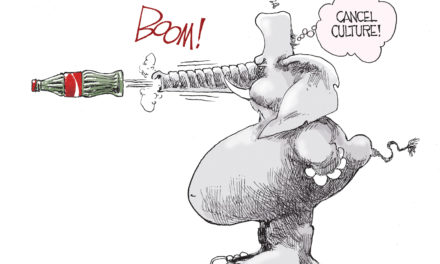On the political front, there are developments that can hearten Democratic supporters – or at least those interested in the city mayor and state governor’s offices.
While the anti-Herenton faction works to amass the daunting 70,000 signatures required for a recall vote, a number of people who support Mayor Willie W. Herenton are keeping a low profile, because to them, this feels like a “no lose” proposition.
That’s because first, they believe (and polls would tend to lend credence to the position) that Mayor Herenton cannot lose a recall vote. Inevitably, the theory goes, it will be a racially charged vote and will motivate his base like no other issue could.
Second, with the large-scale voter turnout to defend Mayor Herenton because of his special status as Memphis’ first African-American mayor, some observers see a benefit in the recall. By firing up the Democratic base and getting out an unusually high percentage to the polls, some see the potential of defeating every Shelby County Republican elected official who holds a fulltime office.
In addition, they see the turnout triggered by a recall vote as benefiting Governor Phil Bredesen and making his re-election a shoo-in. That said, lately, the governor seems to moving in the right direction without any such help.
In the wake of the ethics scandals in the Tennessee Legislature, he’s seen as the “grown up” in charge. When the controversy began to unfold, Governor Bredesen’s poll numbers were anything but impressive. His favorable rating was 46 percent and his unfavorable rating was 48 percent. As the revelations of the “Tennessee Waltz” continued and he called a special session of the Legislature to deal with ethics legislation, his numbers swung dramatically — to 57 percent in favor and 37 percent opposed.
His favorable rating has dropped off slightly since peaking in December, perhaps reflecting the slight traction of the Tennessee Highway Patrol controversy, but he’s still favored by 55 to 38 percent (with the remainder undecided).
In the pantheon of U.S. governors, he’s dead center in the pack. He’s ranked 25th in the ranking of highest approval ratings, tied with neighbor, Mississippi Governor Haley Barbour. He’s also 25th in net approval rating, this time one notch behind neighbor, Arkansas Governor Mike Huckabee.
Bredesen’s shows broad political strength, regardless of ideology, party affiliation, abortion position, and geography. Interestingly, Republicans like him even more than Democrats – 62-31 compared to 52-40. Independents favor him 52-41.
The Democratic numbers result from his only weaknesses at this point — 18-34 year-old voters (who don’t usually cause too much concern because of their lower voter turnout), and black and Hispanic voters. In these categories, his average negative rating outpaces his average positive one by seven per cent, and his soft support by black and Hispanic voters produces mild concern for strategists at this point.
By the way, the highest rated governor is West Virginia’s Joe Manchun with a remarkable 80 percent approval rating, benefiting from his strong leadership to improve coal mine safety in his state. At the other end of the spectrum is Ohio Governor Bob Taft at an almost unbelievable 18 percent as a result of his refusal to leave office despite corruption allegations.



